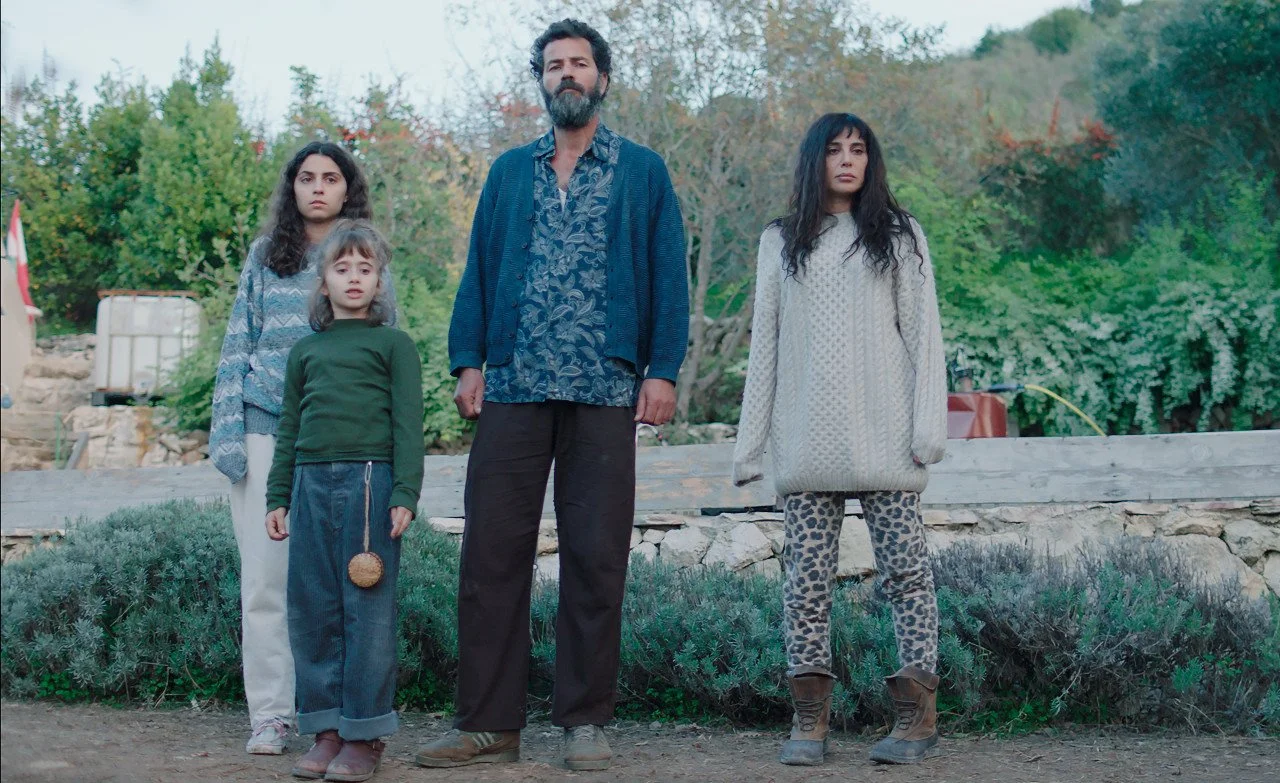Costa Brava, Lebanon: Garbage Comes to Eden
By Liam Lacey
Rating: A-
Director Mounia Akl’s debut feature Costa Brava, Lebanon is not about a literal place.
The actual Costa Brava, a popular tourist area in northeast Spain, is on the other end of the Mediterranean from Lebanon. The equivalent space in the film is a plot of land on a mountainside outside of Beirut, where the Bakri family live off-grid, determined to avoid the pollution and corruption of the city.
In this wryly satiric drama, these modern-day hippies find their principles and loyalties challenged when the city garbage follows them to their haven.
On their isolated home, former singer Soroya (Nadine Labaki) and disillusioned political activist Walid (Saleh Bakri) grow vegetables, raise chickens, press olives, and home-school their two daughters, 17-year-old Tara (Nadia Charbel) and preteen Rim (played by twins, Ceana and Geana Restom).
The land belongs to Walid’s corporate executive sister, and they also share the house with Walid’s mother Zeina (Liliane Chacar Khoury), an ailing but feisty presence.
There’s a hint of a fault-line in this perfect world. Rim has OCD, counting compulsively to deal with her anxiety, fuelled by her father’s grim stories about the grim state of the outside world, which soon intrudes on their haven.
In a pre-election promise, the government announces the construction of a massive “green” garbage processing facility which will cure Beirut’s air pollution and waste disposal problems. (The film was inspired by Lebanon’s 2015 waste disposal crisis).
The facility to be built next to the Bakri family home is a boondoggle, funded with foreign money and political corruption and not green at all. The Bakri’s home is invaded and befouled. Loud machines and music blare from the work site, fires burn through the night, and the Bakris are forced to wear masks against the billowing smoke. One morning, the water in the swimming pool turns blood red.
Walid pursues a variety of legal, extra-legal, and purely futile gestures, like shooting scavenging birds. In an American movie, one imagines his fight against the government and Big Biz would be the centre of the story. In the Lebanese version, injustice is treated like a fact of life and director Akl and co-writer Clara Roquet are more interested in how the crisis exposes Walid’s contradictions.
A purist, he’s determined to protect the women in his family from the contaminating outside influences, even when they resent his help. The teenaged daughter Tara pulls forbidden magazines from the trash and reads them avidly. She also develops an infatuation with Tarek, a visiting engineer, and the only eligible male she seems to have met.
Mother Soroya is flattered when someone remembers her musical career, picks up her guitar again, and starts talking about life in the city. Finally, Walid’s mother — increasingly reliant on an oxygen mask for her emphysema — buys cigarettes and a smartphone for her granddaughter from a garbage man. When Walid objects, she blasts him as “a fascist.”
By the time throngs of chanting protesters arrive at the dump, the Bakri’s home is little more than the field for someone else’s battle. Within the back and forth of family squabbles and warm moments, there are also sprinkles of magic realist beauty.
At one point, Walid imagines a flock of blue trash bags set afire and floating like balloons into the sky. In another scene, Soroya looks out her window at night and sees the landscape rolling by, as if she were on a train. Escape, whether to a different haven or into fantasy, is no more than a respite before the inevitable return to the fight.
Costa Brava, Lebanon. Directed by Mounia Akl, scripted by Mounia Akl and Clara Roquet. Starring Nadine Labak, Saleh Bakri, Nadia Charbel, Ceana Restom, Liliane Chacar, Yumma Marwan, Francois Nour. Opens at Toronto’s Revue Cinema August 13.



